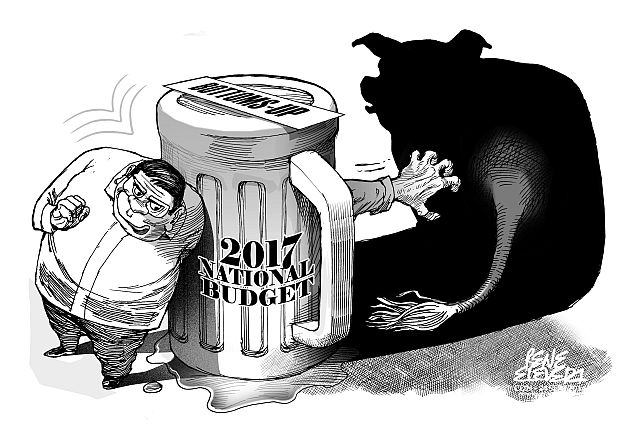
In drafting next year’s national budget, it was surprising to learn about Budget Secretary Benjamin Diokno’s aversion and opposition to the so-called “bottoms-up budgeting” initiated by the late Dept. of the Interior and Local Government (DILG) secretary Jesse Robredo and now continued by his wife, Vice President Leni Robredo.
In opposing the bottoms-up budget approach, President Rodrigo Duterte’s budget secretary, who also served during the administration of former president Joseph Estrada, claimed that a lot of big-ticket projects are set aside in favor of the “wish list” of local government units (LGUs) and their constituents, whom he must perceive to not know any better than the ivory tower technocrats like himself.
Which is both sad and infuriating since it is but a reflection of the condescending, patronizing mind-set that afflicts the bureaucratic hierarchy of imperial Manila. It makes one wonder whether, if they aren’t listening to the taxpayers, they know what they’re doing up there or worse, how much fatty pork they’re planning to grease once they get their grubby hands on the national treasury.
The bottoms-up budgeting at least, as far as how it was implemented in Naga City during Jesse Robredo’s tenure as mayor there, consists of getting inputs from constituents on what projects or programs they wish to be implemented in their communities.
If we were to put it in a local context, this is somewhat similar to the “wish list” budgeting process implemented by the former Rama administration in Cebu City. After getting their wish list, which ran up to billions of pesos, it was then the City Council’s responsibility to vet and revise the proposed amount to something they consider to be a bit more realistic.
Keen or even casual observers are only too aware and familiar with the political wrangles and wheeling-dealing that results; and unless the hostility is too vicious to temper — as in the 2016 budget which was delayed due to the council’s stingy insistence that the proceeds of the South Road Property (SRP) sales are bound in court — they usually come out with the budget before the annual deadline.
But the point is that the constituents, the voters, the taxpayers are given a say on how their money will be spent; and they don’t have to rely on technocrats like Diokno — whose expertise, however considerable, should not be relied upon as biblical truth especially when public funds are concerned — to tell them how to spend it for their own welfare.
Regardless, the presence of pork barrel in the budget had become quite the constant reality even with the Supreme Court ruling against it. But the pork barrel would have been obscenely bigger if the Filipino people don’t have a say on how the budget is crafted, which is what the bottoms-up budgeting process implemented during the previous Aquino administration allows them to do.